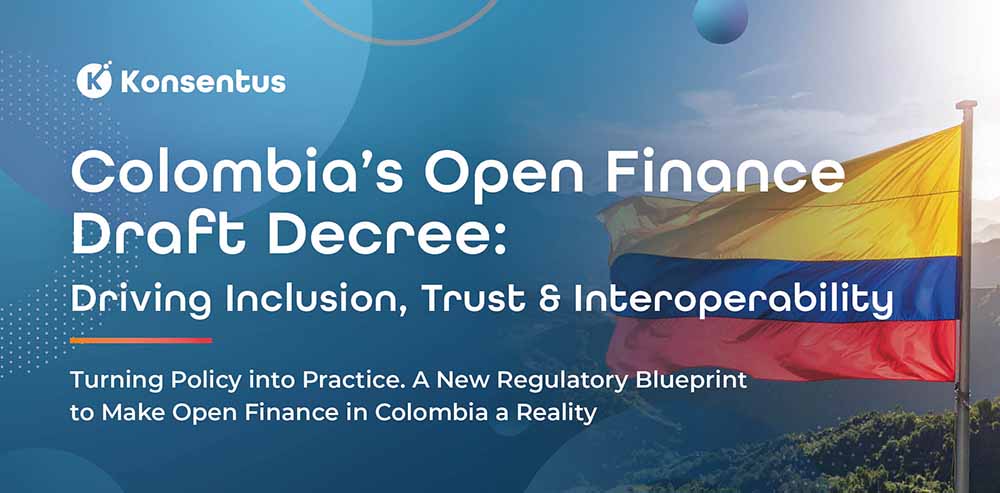As part of Open Banking Exchange’s thought leadership in the world of open banking, our latest webinar: ‘Open Finance in the MENA Region: Powering Regional Growth’, delved into the progress the region is making. We discussed new use cases that are being explored and the rate of collaboration between banks and fintechs.
Open banking has emerged as a truly global phenomenon. There are over 70 countries worldwide with an active open banking programme, all at different stages of design or delivery. Banks across the world are continuing to understand the opportunity of open banking but, in MENA, particularly in the countries of the Gulf Cooperation Council (GCC), benefits were identified early and growth has been rapid.
A Multitude of Policy Objectives Fuelling Open Banking across MENA
In Europe it was innovation, in the UK it was competition. Open Banking should be developed with clear policy objectives in mind.
Mohamed Roushdy of the IFC outlined that the global development of open banking and open finance has encouraged a ‘hybrid-model’ that has learnt from other regions. He stated that ‘the number of fintechs in the region has boomed over the last 3-5 years’, and that ‘fintechs want to collaborate with banks and become part of the ecosystem’. This was a leading driver for central banks to investigate regulating open banking more seriously – driving competition.
Amit Mallick, Global Open Banking Lead at Accenture highlighted that in Saudi Arabia and the United Arab Emirates, the conversation has quickly moved from open banking to open finance ‘with the objective of creating a thriving fintech environment which can provide more innovative and personalised services to consumers and businesses’. Amit believes that the expansion of the fintech sector and the introduction of new products and service have together driven competition and innovation within the region.
The panellists also discussed how financial inclusion is a driver in some markets in the North Africa and Levantine areas.
The Value of Predictable Regulation
The global open banking market has seen various styles of implementation. In the UK there is a very centralised approach whereas in Europe, after the regulation was published, the industry was largely left to its own devices.
Amit Mallick highlighted that ‘what we are seeing across MENA is closer to the UK and Brazil’ rather than Europe. Regulators and central banks are setting up market infrastructures to accelerate the development of open banking.
Sandeep Dhawan, Head of Payments, CEEMEA at J.P. Morgan noted that ‘banks are usually regulatory driven and once regulation is set, they start to implement’. However, in the MENA region, ‘the regulatory authorities are working hand in hand with the banks’. This collaboration means that the regulation becomes more predictable and is less likely to lead to surprises down the road. This approach also means that innovation is less likely to be stifled.
It is not only banks and regulators that are collaborating. Early-stage inclusion of fintechs into the design of the ecosystem is vital. Sandeep stressed that ‘banks alone cannot provide all services; they need to collaborate and work with providers and fintechs if they want to grow’.
The scope of open banking and open finance is very ambitious within the MENA region and as Amit Mallik commented, to make it successful, ‘the larger banks need to do most of the heavy lifting’. The timelines are also very ambitious, but the collaborative conversations need to continue between the entities to ensure that expectations align. It’s an ambitious plan however it is achievable.
Incentivisation as an Early Building Block
Incentivisation or the commercial foundation of open banking is often a challenging area to overcome. Nino Ocampo, Chief Product Officer at Tarabut Gateway noted that in Saudi Arabia ‘time is being spent trying to bake in incentives for banks and specific use cases that would be beneficial for them’. He mentioned that there is not just interest in open banking but also in the API exposure capability – banks are now looking at embedded finance.
Unlike other regions, banks across MENA are not solely interested in being compliant, they’re more interested in how to maximise the benefits of open banking, analysing which fintechs they should work with and which ones can add value to their services and increase their revenue.
Nino concurred, ‘in Saudi Arabia the regulator has set up venture building arms and incubator programmes for fintechs’. Banks are embracing the commercialisation opportunities of open banking.
Regional Harmonisation Would be Helpful but Not Essential
The Arab Monetary Fund has often been a source of valuable regional collaboration. Via its Fintech Working Group, it is bringing entities together to draft guidelines on many topics, not just open banking and open finance.
Mohamed described how ‘the goal of the working group is to bring ideas and views together through multiple discussions with all parties’. This work could be extremely valuable to fintechs who are looking to scale across many markets in the region.
Nino noted that the work they are doing ‘would make life easier in terms of integration, data models and use cases’, but from his experience, ‘regulators are focused on their own markets and trying to get everything done correctly’.
The Road Ahead
It was clear from the audience engagement in the Q&A that there is great interest in the development of open banking across MENA. But it was clear from the panellists that understanding consumer needs is extremely important. The fear of the unknown is always a challenge and education is key. Banks have a crucial role in raising consumer awareness.
Amit stressed that there is always room for improvement, ‘Hong Kong formed a workstream focussed on consumer education and consumer communication. Many regions already have work streams focused on technology, collaboration and the creation of standards but it’s rare to see work streams solely focused on consumers’.
Collaboration should not just involve technology, standards and frameworks but also determining how to inform and educate customers on the benefits and the applicable usage of open banking.




